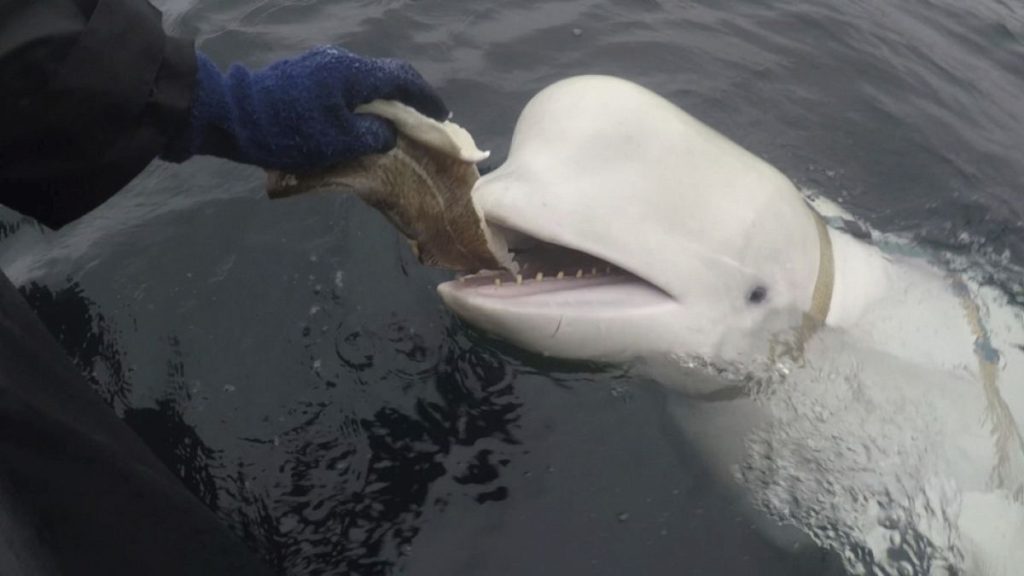In April 2019, a white beluga whale named “Hvaldimir” was first spotted in Norway near Russian waters wearing a harness. This sparked rumors that the whale may be a Moscow spy, as it was found with a harness and what appeared to be a mount for a small camera. The beluga became famous and was given its name, a combination of the Norwegian word for whale – hval – and Russian President Putin’s first name Vladimir. The beluga was monitored for the past three years by marine biologist Sebastian Strand on behalf of the Norway-based Marine Mind non-profit organization.
However, recently, the carcass of Hvaldimir was found floating at the Risavika Bay in southern Norway by a father and son who were fishing. The beluga, which was 4.2 meters long and weighed 1,225 kilograms, was lifted out of the water with a crane and taken to a nearby harbor for examination. Marine biologist Sebastian Strand stated that while the cause of death is not immediately clear, there were no major external injuries visible on the animal. The beluga had been seen in various Norwegian coastal towns over the years and was known to be very interested in people, often responding to hand signals.
The discovery of the dead beluga sparked sadness and concern among the public, as Hvaldimir had intrigued and captivated many since its initial appearance in 2019. The beluga’s history and mysterious behavior led to the speculation that it may have been trained by the Russian navy for military purposes. However, experts have not confirmed these allegations. The NGO Marine Mind, which monitored Hvaldimir, suggested that the beluga may have crossed over from Russian waters where it was presumed to have been held in captivity. The beluga’s interactions with people and response to hand signals indicated that it had a level of domestication consistent with captivity.
The untimely death of Hvaldimir has raised questions about the impact of human intervention on marine life and the welfare of animals held in captivity for research or military purposes. The beluga’s presence in Norwegian waters and its interactions with people highlighted the complex relationship between humans and marine animals, with concerns about the possible exploitation of animals for intelligence-gathering purposes. The tragic end of Hvaldimir’s story serves as a sobering reminder of the ethical considerations surrounding the use of animals in military activities and the importance of conservation efforts to protect marine life.
The investigation into the cause of Hvaldimir’s death is ongoing, with experts working to determine what led to the beluga’s demise. The circumstances surrounding the beluga’s appearance in Norway and its subsequent death have sparked international interest and concern. Hvaldimir’s story has captured the imagination of the public and raised awareness about the need to protect marine animals and their habitats. The legacy of Hvaldimir serves as a reminder of the fragile balance between human activities and the natural world, highlighting the need for responsible stewardship of the oceans and their inhabitants.
In conclusion, the death of Hvaldimir, the white beluga whale with a mysterious past, has brought attention to the complex issues surrounding the relationship between humans and marine animals. The beluga’s story has sparked speculation and debate about the ethical implications of using animals for military purposes and the impact of human intervention on marine life. As the investigation into Hvaldimir’s death continues, there is a renewed focus on the importance of conservation efforts to protect marine animals and their habitats. The legacy of Hvaldimir will continue to resonate, reminding us of the need for responsible stewardship of the oceans and our shared responsibility to safeguard the natural world.


